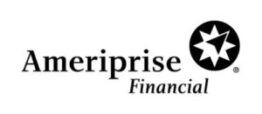

On December 7, 2017, the United States Securities and Exchange Commission and the Department of Justice, through the United States Attorney for the Eastern District of Pennsylvania filed a civil action and a criminal indictment against Paul Wescoe Smith fomerly associated with Bolton Global Capital.
On May 24, 2017, the Guiliano Law Group filed a civil action in arbitration before FINRA on behalf of a public customer against Bolton Global Capital based upon Smith’s conduct in connection with the sale and operation of a Ponzi scheme the Haverford Group.
Smith, age 63, is a resident ofWayne, Pennsylvania. Smith worked in the securities industry as a registered representative since 1982. From May 2007 to February 2017, Smith was a registered representative with Bolton Global Capital.
Smith engaged in the sale of unregistered securities in the form of a hedge fund under the name The Haverford Group to more than a dozen investors.
In February 2017, Bolton Global Capital notified Smith’s customers that their accounts were being transferred to another “financial representative.” However, no warning or mention is made as to the circumstances surrounding Smith’s actual termination from Bolton Capital or his sale of unregistered securities in the form of an interest in The Haverford Group.
The SEC Complaint alleges that Smith raised approximately $2.35 million from approximately 30 investors, many of whom were his Bolton Global Capital brokerage customers, by representing that he would invest their money in publicly traded securities through The Haverford Group, an outside partnership that Smith formed and did not disclose to his broker-dealer employers.
However, is alleged to have instead used the investors’ money to repay other investors and for his own personal use.
Investors in Haverford generally were unsophisticated, and were retirees, elderly individuals, friends from Smith’s country club, and longtime brokerage customers who trusted Smith and relied on his representations regarding Haverford’s supposed investment strategy.
According to the Complaint, Smith convinced some of his most trusting and vulnerable brokerage customers, many of them retired or elderly, to invest their money in Haverford while knowing the investment was not legitimate. Smith also fabricated phony account statements that reflected fictitious account balances and gains, kept his and Haverford’s activities and accounts hidden from his employers, and used money from investors to repay others,
Smith’s scheme collapsed in October 2016 when an investor he failed to repay complained to the police.
Smith, in the beginning, made a few investments on behalf ofHaverford. These limited investments aside, Smith used investors’ money to pay prior investors who requested partial or full liquidation oftheir accounts, including false returns on their investments, and for his own personal expenses.
Smith wrote at least $247,400 worth of checks to himself from Haverford’s checking account, which he deposited into his personal bank accounts and used for personal expenses. Smith also deposited approximately $195,800 from his personal accounts into Haverford’s checking account-often when an investor was seeking a return ofhis or her investment and funds from Haverford were not available. This had the effect ofallowing the fraud to continue undetected.
Smith took approximately $2.35 million from investors, though he used a large portion ofthat amount to pay investors their principal and supposed “gains” as they exited their investments in Haverford.
In response to the arbitration claims filed against Bolton Global Capital, it claims that “Mr. Smith lacked actual authority from Bolton to engage in fraudulent, Haverford Group related transactions, or a Ponzi scheme, and that “the activities at issue in the SOC were clearly outside of the scope of Mr. Smith’s affiliation with Bolton as a registered representative.”
However, the SEC complaint and the criminal indictment reference a brokerage account that Smith maintained n the name of the Haverford Group at Bolton Global Capital, which Smith liquidated in June 2011. Bolton Global Capital has an absolute duty to supervise Smith and particularly brokerage accounts controlled by him. Had Bolton Global Capital supervised the Haverford Group account, it would have seen the deposit and disbursement of funds from many of its own customers.
Following Smith’s departure from Bolton Global Capital, it also appears that reference to the Haverford Group has been removed as one of Smith’s approved outside business activities.
In both cases, the Court has ordered and Smith has agreed to an Order providing for resitution of $365,000 or just a fraction of his victims’ losses. However, it is not clear, and is highlyt unlikely that Smith has the financial ability to make reasonable form of resitituion.
Courts and securities arbitration panels, in identical circumstances, have long held brokerage firms such as Bolton Global, responsible for the conduct of their registered representatives in “selling away” cases based upon the broker-dealer’s failure to supervise.
Our practice is limited to the representation of investors. We accept representation on a contingent fee basis, meaning there is no cost to you unless we make a recovery for you. There is never any charge for a consultation or an evaluation of your claim. For more information, contact us at (877) SEC-ATTY.
For more information concerning common claims against stockbrokers and investment professionals, please visit us at securitiesarbitrations.com
Nicholas J. Guiliano has over twenty years experience representing investors before the Financial Industry Regulatory Authority, the New York Stock Exchange and before the National Association of Securities Dealers, Office of Dispute Resolution. Over the last twenty years, he has represented more than a thousand investors from all across the United States and from several foreign countries, in claims against stockbroker and broker-dealers for fraud, breach of fiduciary duty, churning or excessive trading, the sale of unsuitable investments, the sale of defective investments, the sale of unregistered securities, and the failure to supervise. He is frequently quoted in the national media on securities and investment related issues, most recently on National Public Radio. He offers his services on purely a contingent fee basis, and is also a member of Public Investors Arbitration Bar Association.








